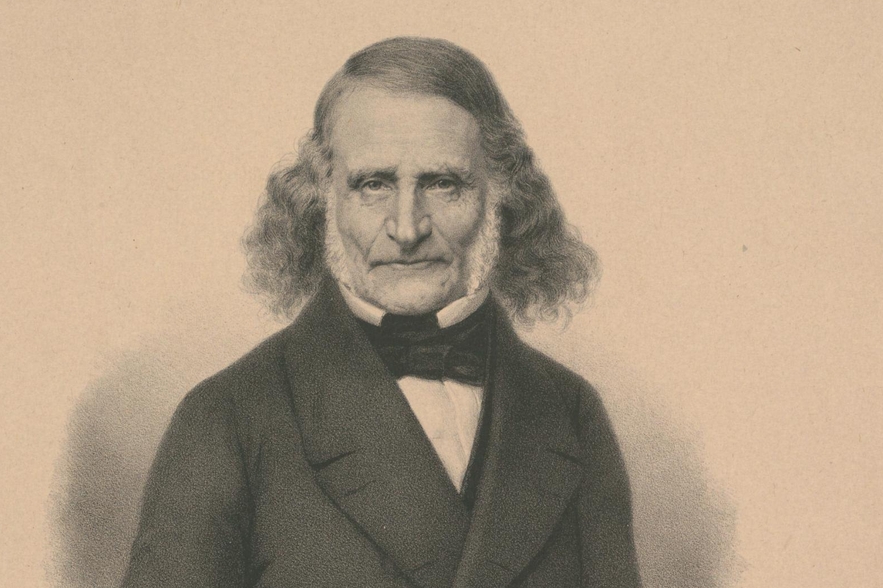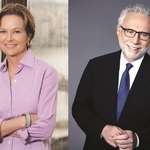The Role of Scholarship in Shaping Jewish Identity

- Date/Time
- –
- Venue
- Center for Jewish History (map)
15 W. 16th St.
New York, NY 10011 - Format
- In person
The Leo Baeck Institute (LBI) and the Herbert D. Katz Center for Advanced Judaic Studies will hold a symposium and open an exhibition on the “Wissenschaft des Judentums”—or the “scientific” study of Judaism—at the Center for Jewish History in New York (CJH).
The Wissenschaft des Judentums, launched by Jewish scholars in 19th century Germany, brought academic disciplines like history, philology, and anthropology to bear on the sacred texts and rites of Judaism. This enterprise not only formed the basis of modern academic Jewish studies, but also shaped the manifold understanding and practice of Judaism as it exists today.
Concurrent with the Symposium, Leo Baeck Institute will open the exhibition Wissenschaft des Judentums: Jewish Studies and the Shaping of Jewish Identity in the Katherine and Clifford Goldsmith Gallery at the Center for Jewish History. The exhibit illuminates the lives and work of leading proponents of the Wissenschaft as well as its historical context using original materials from the LBI library, archives and art collection.
Leo Baeck Medal for Prof. Ismar Schorsch
On this occasion, LBI will honor a distinguished scholar of the Wissenschaft, Professor Ismar Schorsch, with the Leo Baeck Medal. Professor Schorsch is Chancellor Emeritus of The Jewish Theological Seminary and President Emeritus of LBI, New York.
Wissenschaft des Judentums—What was the “Scientific” Study of Judaism?
Inspired by the Enlightenment, yet still confronted with continued discrimination, a group of young Jewish scholars in Berlin around 1818 began to appropriate methods initially devised for the study of classical antiquity and other secular subjects to an entirely new area: the study of Jews and Judaism. They wanted to lend the dignity and prestige of these new disciplines to their faith. These scholars, including Leopold Zunz, Eduard Gans, and Heinrich Heine, understood their enterprise to be imperative for the acquisition of equal rights: Judaism had to be emancipated in order for the Jews to be emancipated. They were followed by others, including Abraham Geiger, Heinrich Graetz, and Moritz Steinschneider, who laid the further foundations for the academic study of Jews and Judaism.
Just as the historical-critical study of Christianity and the Bible had stirred controversy for its treatment of sacred texts as human creations, the Wissenschaft project drew the ire of traditionalists who believed it undermined the sacred underpinnings of the faith. Others, however, adopted its methods to stake a claim for their own vision of Jewish practice. The “scientific” study of Judaism therefore became the shared yet also contested tool of the proponents of various denominational movements: The advocates of Reform, Conservative, and Neo-Orthodoxy all developed their own versions of Wissenschaft to create, articulate and legitimate their particular version of Judaism.
Program
12:00 PM
Exhibition open for viewing
1:30 PM
Welcome and Presentation of the Leo Baeck Medal by Rabbi Ronald B. Sobel to Prof. Ismar Schorsch
1:40 PM
Opening Remarks on the Wissenschaft by Prof. Ismar Schorsch
1:50 PM Panel I—Wissenschaft des Judentums and Contemporary Jewish Identity
Chairperson—Andreas Brämer (Institute for the History of German Jews, Hamburg)
Christian Wiese (Goethe University, Frankfurt/Main)
The impact of the Wissenschaft on academic Jewish culture and identity among Jewish scholars
Mirjam Thulin (Institute of European History, Mainz)
The Wissenschaft and the definition of religiously liberal Jewish identity
Yitzhak Conforti (Bar-Ilan University)
The impact of the Wissenschaft on Jewish nationalism and Zionism
2:50 – 3:15 PM Break
3:15 PM Panel II—Wissenschaft des Judentums and Contemporary Jewish Culture
Chairperson—David Sorkin (Yale University)
Gavriel Rosenfeld (Fairfield University)
Annie Polland (Lower East Side Tenement Museum)
Jonathan Rosen (Nextbook Press)
4:15 – 5:00 PM Reception
